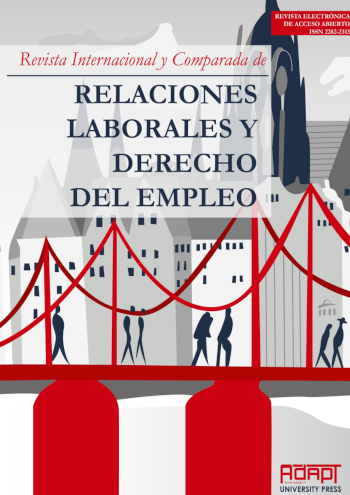Resumen
El siglo XX ha estado marcado por una profunda revolución biotecnológica -descubrimiento de la penicilina, técnicas innovadoras de trasplantes o el mapeamiento (sic) del genoma humano-; en el siglo XXI las combinaciones de genes y especies distintas apuntan hacia una reinvención del hombre y su naturaleza a partir de su esencia bioquímica, cuestión del todo preocupante en el mundo científico y en el jurídico. Aunque no estamos ante un tema novedoso, la discriminación genética en el mundo laboral ha caído en el olvido, y el diferente enfoque, tanto en el ámbito europeo como fuera de él, es realmente preocupante teniendo en cuenta el avance de la aplicación de la tecnología al mundo del trabajo. Por ello, planteamos, a la luz de la heterogénea normativa internacional y nacional, y sin olvidar las cuestiones éticas y sociales, cómo puede influir la genética en el encuadramiento profesional del trabajador, en un futuro marcado por el avance de la robótica y la inteligencia artificial.
The 20th century has been marked by a profound biotechnological revolution -discovery of penicillin, innovative techniques of transplants or the mapping (sic) of the human genome-. In the 21st century, the combinations of genes and different species point to a reinvention of man and nature from their biochemical essence, a matter of utter concern in the scientific and juridical realms. Although this is not a new issue, genetic discrimination in the workplace has fallen into oblivion, and the different approach, both in Europe and beyond, is worrying, considering the progress of the application of technology to the realm of work. Therefore, we propose, in light of the heterogeneous international and national regulations, and without forgetting the ethical and social issues, how genetics can influence the professional framework of the worker, in a future marked by the advance of robotics and intelligence artificial.

